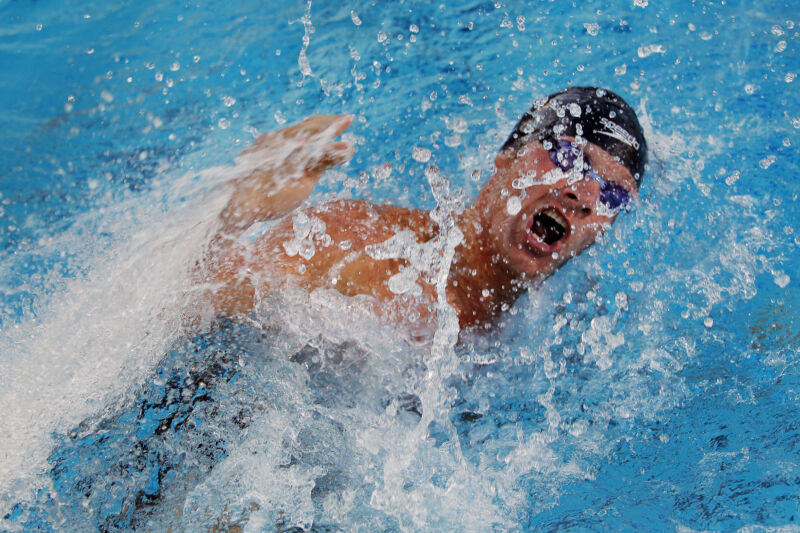Here’s what happens when a swim team competes with an intestinal pathogen

Enlarge / A swimmer in the men's 200 meter breaststroke finals during a national championship competition on August 6, 2011, in Palo Alto, California. (credit: Getty | Brian Bahr)
Several college swim teams learned a stomach-churning lesson the hard way during a recent series of meets: regardless of skill or speed, the real winner of the meet will always be the gastrointestinal pathogen that enters the pool.
In an outbreak investigation that is destined to become a nauseating cautionary tale, health officials traced the spread of the water-based intestinal parasite Cryptosporidium (aka crypto) through several pools of competitive swimmers with the squirts. The case involved a lucky break: Health officials fished out the crypto rather quickly. But, it wasn't fast enough to keep the parasite from butterflying its way to members of another college's team, showing how quickly and easily it could have spread without intervention
It also highlighted "an ongoing need to promote healthy swimming, including recommendations for persons not to swim if they have diarrhea and to avoid swallowing swimming pool water to prevent waterborne disease," the authors of a case report on the investigation wrote. The report, led by health officials in Massachusetts, was published Thursday in the Centers for Disease Control and Prevention's Morbidity and Mortality Weekly Report.